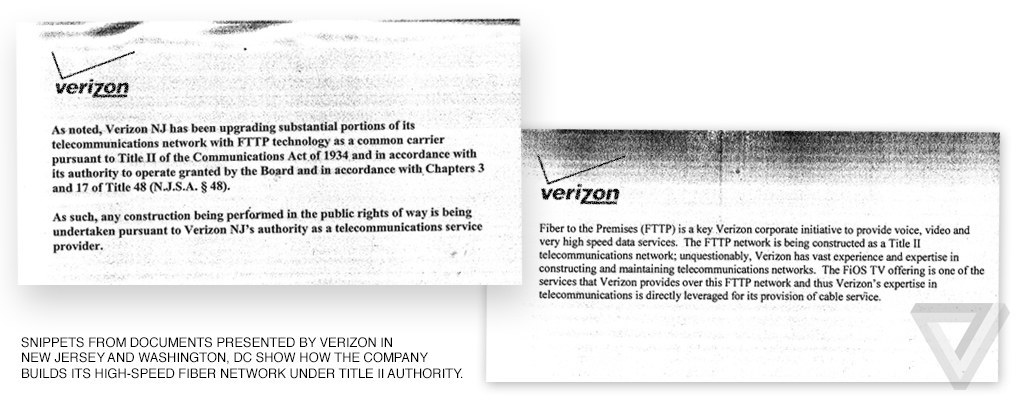Affiliate links on Android Authority may earn us a commission. Learn more.
Verizon continues pushing against Title II classification with accounting argument
Published onNovember 4, 2014
![Verizon logo ces [aa] (3) Verizon logo](https://www.androidauthority.com/wp-content/uploads/2013/01/Verizon-logo-ces-aa-3.jpg)
Recently, Verizon penned another blog post claiming that the FCC was trying to “push for heavier regulation of the Internet.”
You see, Verizon thinks that those who favor Title II classification are somehow not paying attention to the harmful aspect of Title II. Apparently, ISP’s continue to claim that any reclassification of them as utilities under Title II (which allows the FCC to actually help consumers against blatant violations) would destroy the Internet.
Just listen to Heartland’s Scott Cleland who is actually paid by AT&T, Comcast & Time Warner Cable:
Title II is also considered the “nuclear option” because it would destroy much of the value of the nation’s $1.2 trillion in private investment in America’s wireline, wireless and satellite Internet infrastructure, and because the “fallout” from Title II reclassification could make the sector “radioactive” to future private investment. – Heartland.org
Except, as analyst Bruce Kushnick points out, while Verizon has been complaining that Title II will wreck the internet, they have also been using Title II classification to get government perks and taxpayer money.
In fact, we found in a Verizon filing in the Verizon District of Columbia (DC) franchise application, that by 2007 Verizon had franchises in 835 different locations in 12 states, and in the application Verizon again repeats that the DC deployment is a Title II service. – Huffington Post

Verizon does this because classifying FiOS as Title II gives Verizon the authority to charge DSL users additional money. Some reports claim that Verizon made as much as an additional $4.4 billion in revenue. Shocking.
Title II gave Verizon a unique opportunity to justify boosting telephone rates in discussions with regulators, arguing that these phone calls would run over the same fiber used by FiOS, Verizon’s home internet service. – Huffington Post
Getting back to Verizon’s recent blog post, they take specific issue with a recent article by Public Knowledge’s Harold Feld who discusses the impact that “forbearance” has on the net neutrality discussion. Forbearance refers to the power that Congress gave the FCC as part of the Telecommunications Act of 1996, allowing the FCC to disregard specific provision of law that Congress has passed.
Verizon argues that there is no way that the FCC could deal with forbearance with Title II due to its complicated and “nauseating” process. Verizon points to an accounting standard that they do not like which is mandated by the FCC. They have asked for forbearance from it and have not been granted it by the FCC. According to Verizon, this shows how terrible the forbearance process is and will be in the future.
Except, as Harold has previously pointed out, the FCC has granted all kinds of forbearance petitions since 2001. In fact, the FCC allowed forbearance petitions in situations where something “may happen” in the future that helps competition. Of course, none of the petitions did anything to help competition but every telecom company demanded to be treated under this rather idiotic standard when they wanted forbearance petitions to be granted.

When the FCC decided to stop allowing forbearance petitions on the magical notion of “Well, it may happen in the future” and started to base the petitions on actual market share numbers, Verizon sued them (Verizon Tel. Cos. v. FCC, 570 F.3d 294, 302 (D.C. Cir. 2009)). How dare the FCC use actual data!
Additionally, what about the FCC forbearance allowances in the last few years? In 2012, the FCC issued a massive Lifeline Reform Order which gave certain statutory restrictions on who could get Lifeline funds. The FCC did it on their own motion and did not require any factual finding. They simply allowed the petition and moved on.
Harold also brought up the rather straight-forward point that although companies such as Verizon continue to scream about the atrocious process, case-law still specifically allows the FCC to use whatever market analysis that they feel is appropriate (Footnote 18 of Qwest vs FCC).